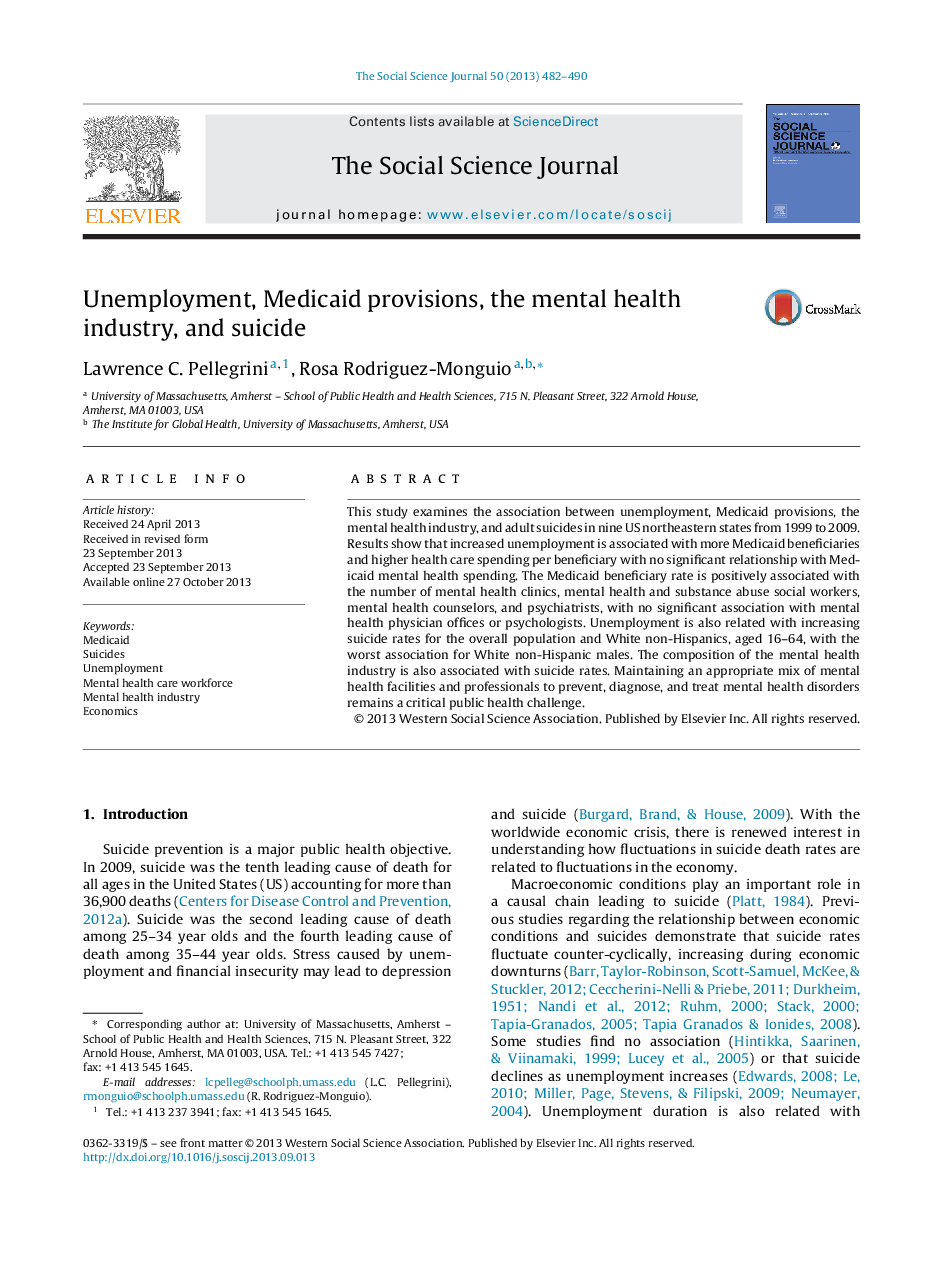| Article ID | Journal | Published Year | Pages | File Type |
|---|---|---|---|---|
| 140147 | The Social Science Journal | 2013 | 9 Pages |
•Unemployment impacts mental distress and suicide for working age individuals.•Unemployment leads to increased Medicaid beneficiaries and healthcare spending, with no effect on mental health spending.•Medicaid has a differing effect on the composition of the mental health industry.•A balance of mental health professionals remains a critical public health challenge.
This study examines the association between unemployment, Medicaid provisions, the mental health industry, and adult suicides in nine US northeastern states from 1999 to 2009. Results show that increased unemployment is associated with more Medicaid beneficiaries and higher health care spending per beneficiary with no significant relationship with Medicaid mental health spending. The Medicaid beneficiary rate is positively associated with the number of mental health clinics, mental health and substance abuse social workers, mental health counselors, and psychiatrists, with no significant association with mental health physician offices or psychologists. Unemployment is also related with increasing suicide rates for the overall population and White non-Hispanics, aged 16–64, with the worst association for White non-Hispanic males. The composition of the mental health industry is also associated with suicide rates. Maintaining an appropriate mix of mental health facilities and professionals to prevent, diagnose, and treat mental health disorders remains a critical public health challenge.
